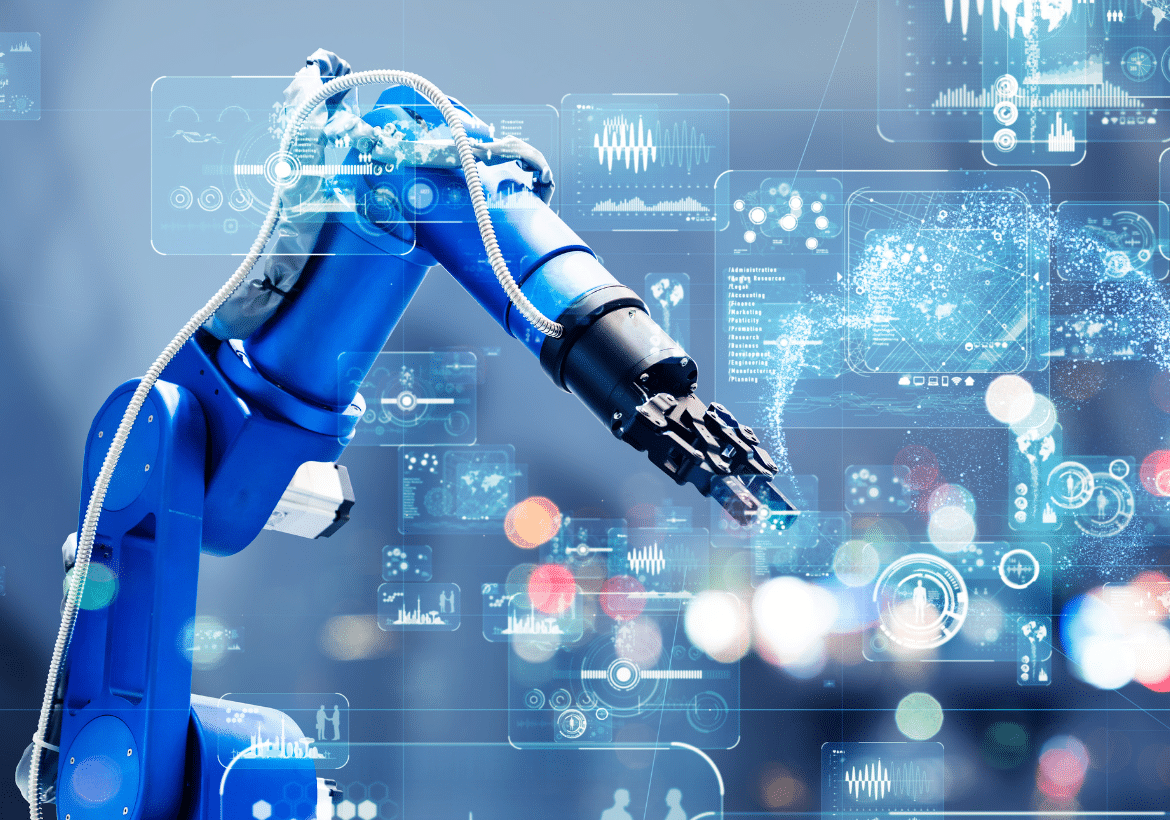Unlocking Industrial AI: Revolutionizing Manufacturing with Smart Intelligence
Industrial AI is emerging as a pivotal force behind the digital transformation of the manufacturing sector. This cutting-edge integration of artificial intelligence into industrial environments is optimizing operations, reducing costs, and enabling smarter decision-making. As manufacturers seek to remain competitive in an increasingly data-driven landscape, Industrial AI offers tools to enhance productivity and streamline workflows. By combining machine learning, deep learning, and automation technologies with real-time industrial data, businesses can achieve unprecedented levels of efficiency and agility.
Source - https://www.marketresearchfuture.com/reports/industrial-ai-market-12213
One of the most impactful applications of Industrial AI lies in predictive maintenance. Instead of relying on traditional scheduled checks, AI algorithms can analyze sensor data from machinery to predict when equipment might fail. This proactive approach minimizes unplanned downtime, extends asset life, and reduces maintenance costs. Industries such as automotive, aerospace, and energy are rapidly adopting predictive maintenance powered by AI to ensure operational continuity and maximize return on investment.
In the realm of industrial automation, AI is enabling machines to go beyond simple repetitive tasks. AI-powered robotics now have the capacity to make real-time decisions, adapt to new variables, and collaborate safely with human workers. Smart factories leverage these advancements to boost flexibility and responsiveness on the production line. With AI at the core of automation, manufacturers can scale operations quickly and customize products without sacrificing efficiency or quality.
Another significant benefit of Industrial AI is enhanced quality control. AI-driven computer vision systems can inspect products with high precision and speed, identifying defects that might be missed by human inspectors. This not only ensures superior product consistency but also reduces waste and rework costs. Industries producing high-volume or high-precision goods, such as electronics or pharmaceuticals, gain a competitive edge by deploying AI-based quality assurance systems.
Industrial analytics is also being revolutionized by AI. Traditional methods of data analysis are being replaced with advanced AI algorithms capable of uncovering deep insights from complex datasets. These analytics help industrial organizations make data-informed decisions on everything from supply chain logistics to energy management. By visualizing trends and forecasting demand, AI enables leaders to optimize resources and reduce inefficiencies throughout the value chain.
The implementation of Industrial AI is instrumental in realizing the vision of Industry 4.0. By interconnecting smart devices, cloud platforms, and AI-driven software, manufacturers can create highly responsive and self-optimizing production ecosystems. Industrial AI supports this evolution by turning raw data into actionable intelligence, facilitating seamless communication between machines, and enabling adaptive manufacturing strategies tailored to changing market conditions.
Despite its transformative potential, the adoption of Industrial AI does come with challenges. Organizations must navigate issues such as data privacy, workforce reskilling, and integration with legacy systems. Furthermore, the success of AI implementations depends on the availability of high-quality data and a clear strategy for aligning AI with business goals. To address these concerns, many companies are investing in AI training programs and collaborating with technology providers to ensure smooth and sustainable integration.
Across the globe, companies are already demonstrating the tangible benefits of Industrial AI. For example, Siemens uses AI for process optimization in its factories, resulting in significant cost savings and increased production efficiency. Similarly, General Electric employs AI to analyze data from industrial equipment, helping customers improve asset performance and energy usage. These success stories illustrate the vast potential of Industrial AI to reshape the future of manufacturing.
Industrial AI is emerging as a pivotal force behind the digital transformation of the manufacturing sector. This cutting-edge integration of artificial intelligence into industrial environments is optimizing operations, reducing costs, and enabling smarter decision-making. As manufacturers seek to remain competitive in an increasingly data-driven landscape, Industrial AI offers tools to enhance productivity and streamline workflows. By combining machine learning, deep learning, and automation technologies with real-time industrial data, businesses can achieve unprecedented levels of efficiency and agility.
Source - https://www.marketresearchfuture.com/reports/industrial-ai-market-12213
One of the most impactful applications of Industrial AI lies in predictive maintenance. Instead of relying on traditional scheduled checks, AI algorithms can analyze sensor data from machinery to predict when equipment might fail. This proactive approach minimizes unplanned downtime, extends asset life, and reduces maintenance costs. Industries such as automotive, aerospace, and energy are rapidly adopting predictive maintenance powered by AI to ensure operational continuity and maximize return on investment.
In the realm of industrial automation, AI is enabling machines to go beyond simple repetitive tasks. AI-powered robotics now have the capacity to make real-time decisions, adapt to new variables, and collaborate safely with human workers. Smart factories leverage these advancements to boost flexibility and responsiveness on the production line. With AI at the core of automation, manufacturers can scale operations quickly and customize products without sacrificing efficiency or quality.
Another significant benefit of Industrial AI is enhanced quality control. AI-driven computer vision systems can inspect products with high precision and speed, identifying defects that might be missed by human inspectors. This not only ensures superior product consistency but also reduces waste and rework costs. Industries producing high-volume or high-precision goods, such as electronics or pharmaceuticals, gain a competitive edge by deploying AI-based quality assurance systems.
Industrial analytics is also being revolutionized by AI. Traditional methods of data analysis are being replaced with advanced AI algorithms capable of uncovering deep insights from complex datasets. These analytics help industrial organizations make data-informed decisions on everything from supply chain logistics to energy management. By visualizing trends and forecasting demand, AI enables leaders to optimize resources and reduce inefficiencies throughout the value chain.
The implementation of Industrial AI is instrumental in realizing the vision of Industry 4.0. By interconnecting smart devices, cloud platforms, and AI-driven software, manufacturers can create highly responsive and self-optimizing production ecosystems. Industrial AI supports this evolution by turning raw data into actionable intelligence, facilitating seamless communication between machines, and enabling adaptive manufacturing strategies tailored to changing market conditions.
Despite its transformative potential, the adoption of Industrial AI does come with challenges. Organizations must navigate issues such as data privacy, workforce reskilling, and integration with legacy systems. Furthermore, the success of AI implementations depends on the availability of high-quality data and a clear strategy for aligning AI with business goals. To address these concerns, many companies are investing in AI training programs and collaborating with technology providers to ensure smooth and sustainable integration.
Across the globe, companies are already demonstrating the tangible benefits of Industrial AI. For example, Siemens uses AI for process optimization in its factories, resulting in significant cost savings and increased production efficiency. Similarly, General Electric employs AI to analyze data from industrial equipment, helping customers improve asset performance and energy usage. These success stories illustrate the vast potential of Industrial AI to reshape the future of manufacturing.
Unlocking Industrial AI: Revolutionizing Manufacturing with Smart Intelligence
Industrial AI is emerging as a pivotal force behind the digital transformation of the manufacturing sector. This cutting-edge integration of artificial intelligence into industrial environments is optimizing operations, reducing costs, and enabling smarter decision-making. As manufacturers seek to remain competitive in an increasingly data-driven landscape, Industrial AI offers tools to enhance productivity and streamline workflows. By combining machine learning, deep learning, and automation technologies with real-time industrial data, businesses can achieve unprecedented levels of efficiency and agility.
Source - https://www.marketresearchfuture.com/reports/industrial-ai-market-12213
One of the most impactful applications of Industrial AI lies in predictive maintenance. Instead of relying on traditional scheduled checks, AI algorithms can analyze sensor data from machinery to predict when equipment might fail. This proactive approach minimizes unplanned downtime, extends asset life, and reduces maintenance costs. Industries such as automotive, aerospace, and energy are rapidly adopting predictive maintenance powered by AI to ensure operational continuity and maximize return on investment.
In the realm of industrial automation, AI is enabling machines to go beyond simple repetitive tasks. AI-powered robotics now have the capacity to make real-time decisions, adapt to new variables, and collaborate safely with human workers. Smart factories leverage these advancements to boost flexibility and responsiveness on the production line. With AI at the core of automation, manufacturers can scale operations quickly and customize products without sacrificing efficiency or quality.
Another significant benefit of Industrial AI is enhanced quality control. AI-driven computer vision systems can inspect products with high precision and speed, identifying defects that might be missed by human inspectors. This not only ensures superior product consistency but also reduces waste and rework costs. Industries producing high-volume or high-precision goods, such as electronics or pharmaceuticals, gain a competitive edge by deploying AI-based quality assurance systems.
Industrial analytics is also being revolutionized by AI. Traditional methods of data analysis are being replaced with advanced AI algorithms capable of uncovering deep insights from complex datasets. These analytics help industrial organizations make data-informed decisions on everything from supply chain logistics to energy management. By visualizing trends and forecasting demand, AI enables leaders to optimize resources and reduce inefficiencies throughout the value chain.
The implementation of Industrial AI is instrumental in realizing the vision of Industry 4.0. By interconnecting smart devices, cloud platforms, and AI-driven software, manufacturers can create highly responsive and self-optimizing production ecosystems. Industrial AI supports this evolution by turning raw data into actionable intelligence, facilitating seamless communication between machines, and enabling adaptive manufacturing strategies tailored to changing market conditions.
Despite its transformative potential, the adoption of Industrial AI does come with challenges. Organizations must navigate issues such as data privacy, workforce reskilling, and integration with legacy systems. Furthermore, the success of AI implementations depends on the availability of high-quality data and a clear strategy for aligning AI with business goals. To address these concerns, many companies are investing in AI training programs and collaborating with technology providers to ensure smooth and sustainable integration.
Across the globe, companies are already demonstrating the tangible benefits of Industrial AI. For example, Siemens uses AI for process optimization in its factories, resulting in significant cost savings and increased production efficiency. Similarly, General Electric employs AI to analyze data from industrial equipment, helping customers improve asset performance and energy usage. These success stories illustrate the vast potential of Industrial AI to reshape the future of manufacturing.
0 Comments
0 Shares
806 Views
0 Reviews



